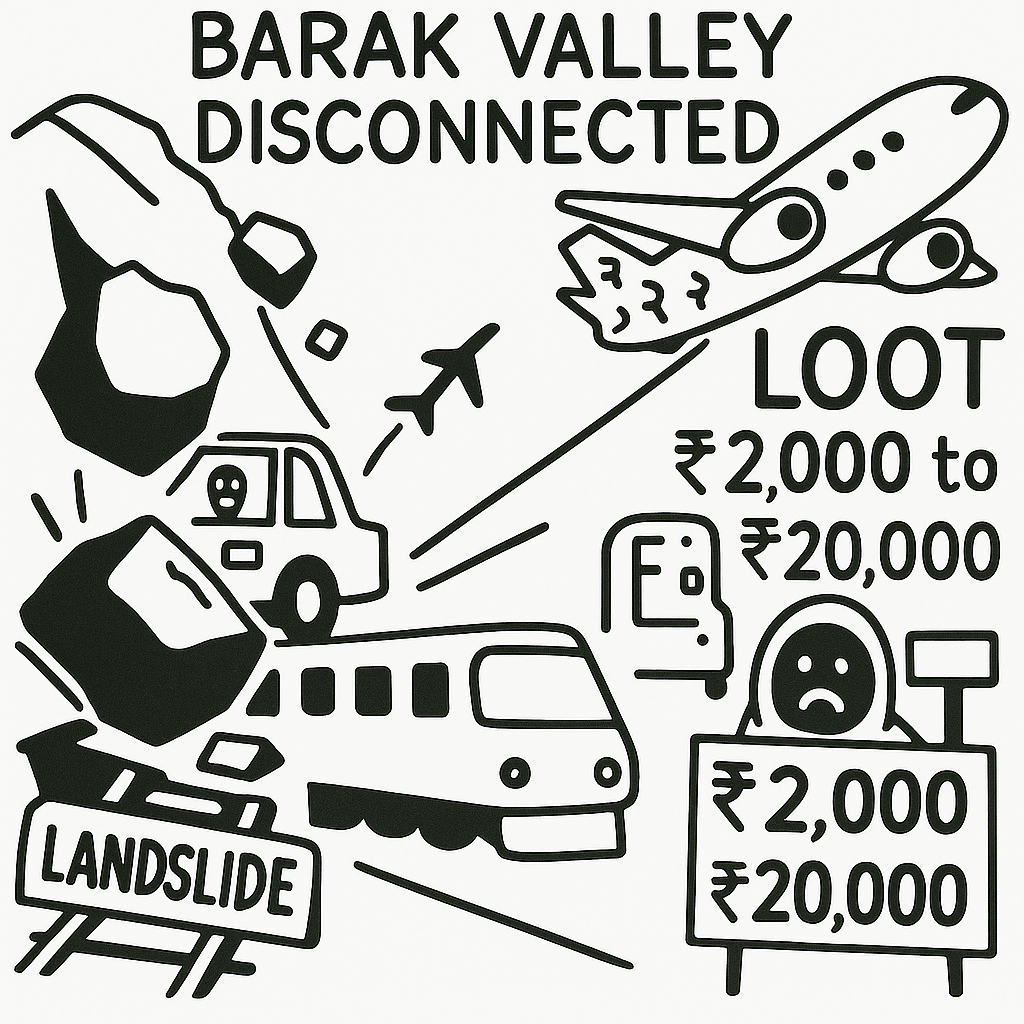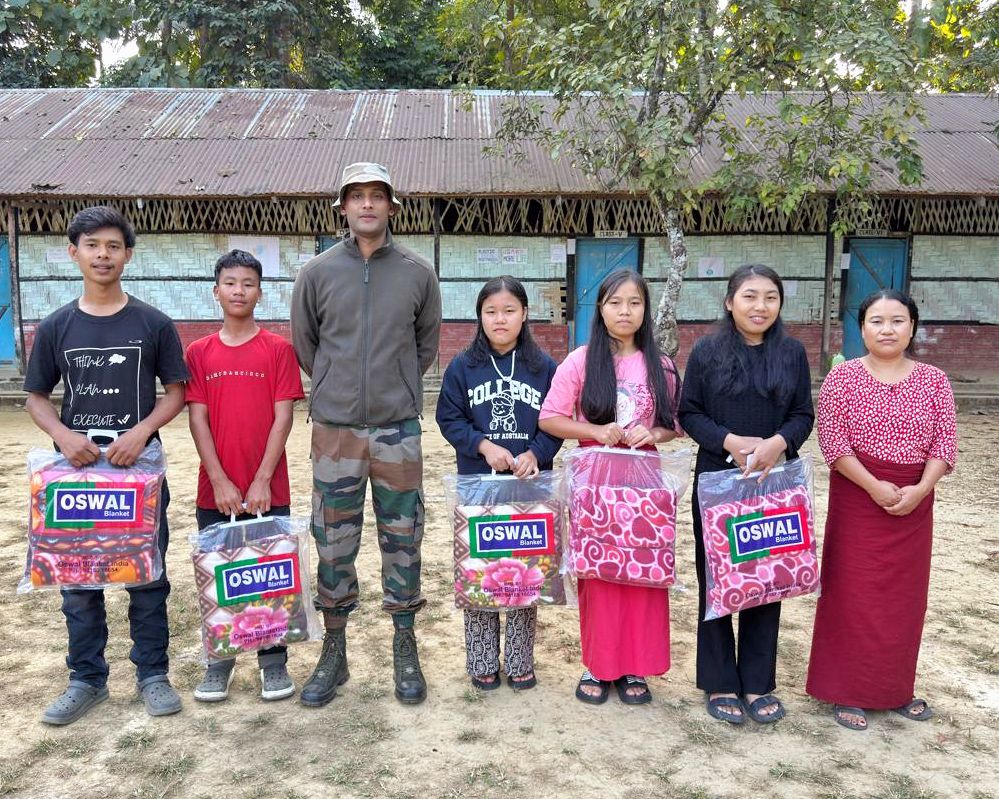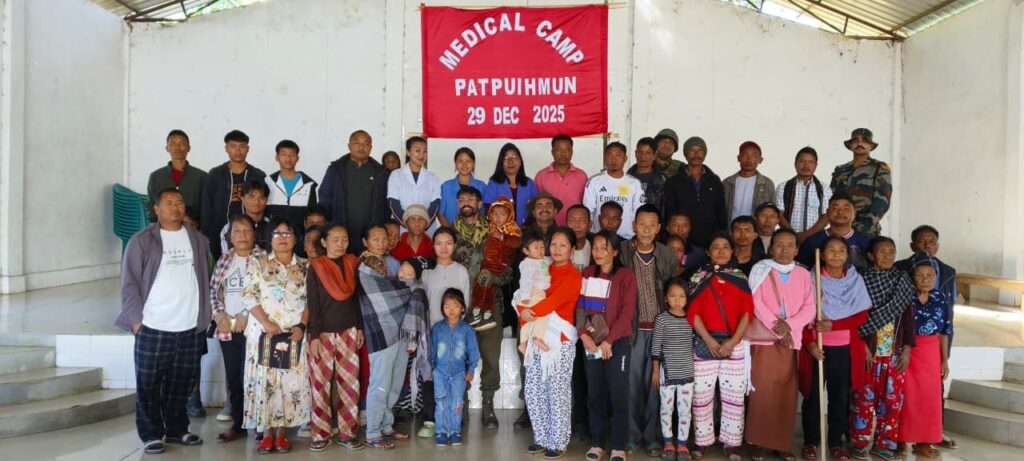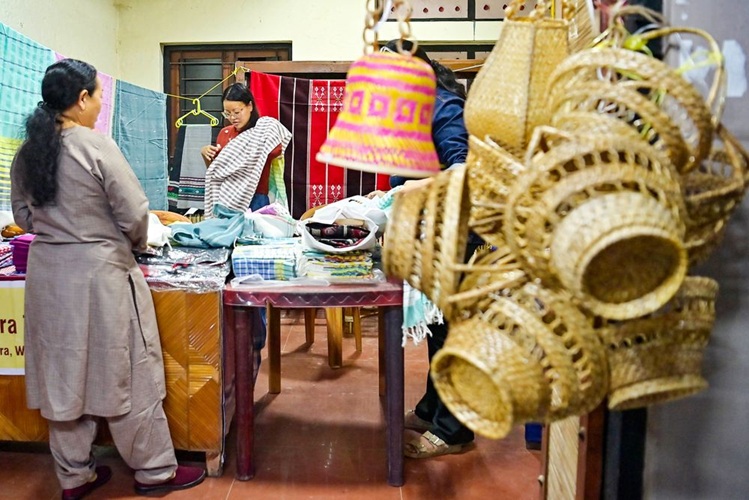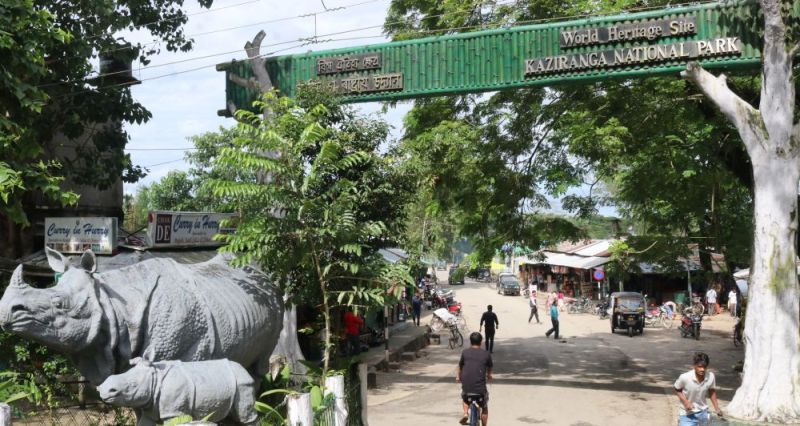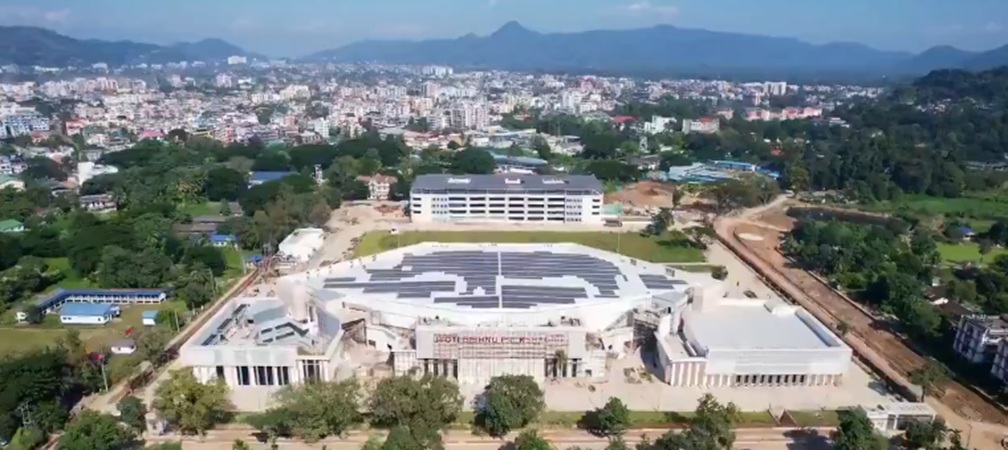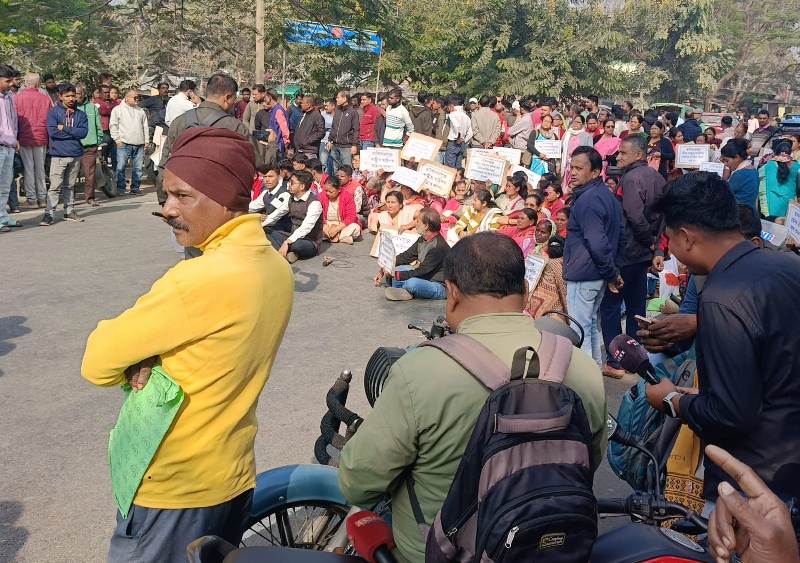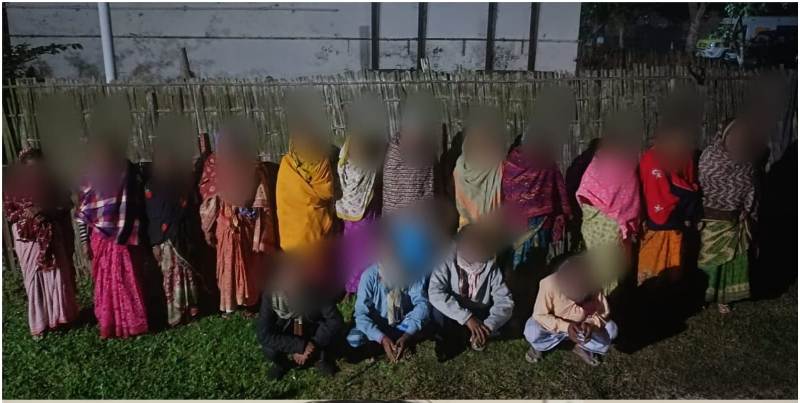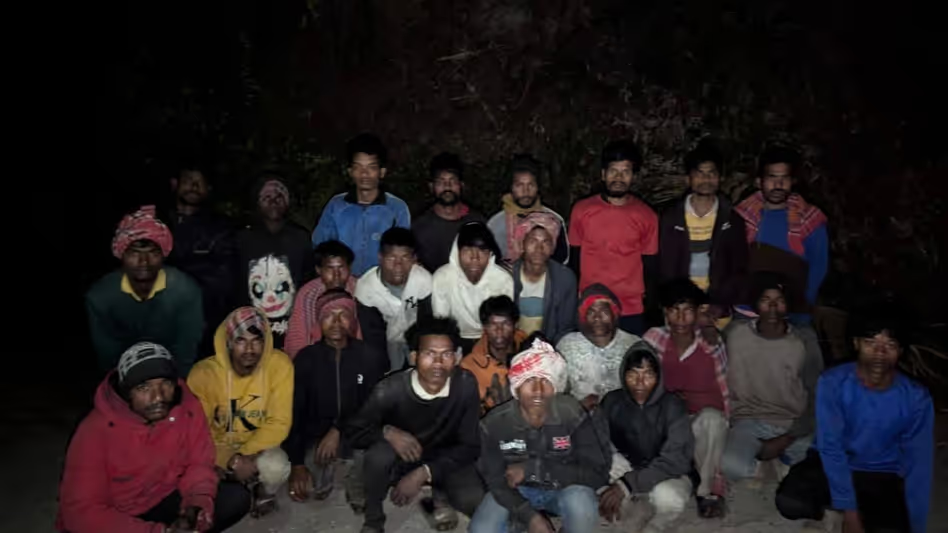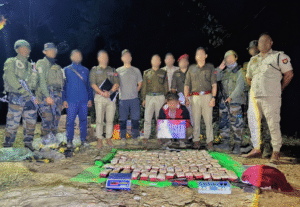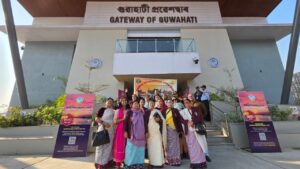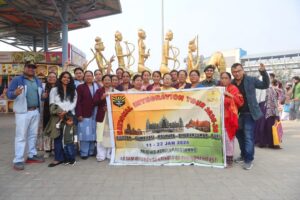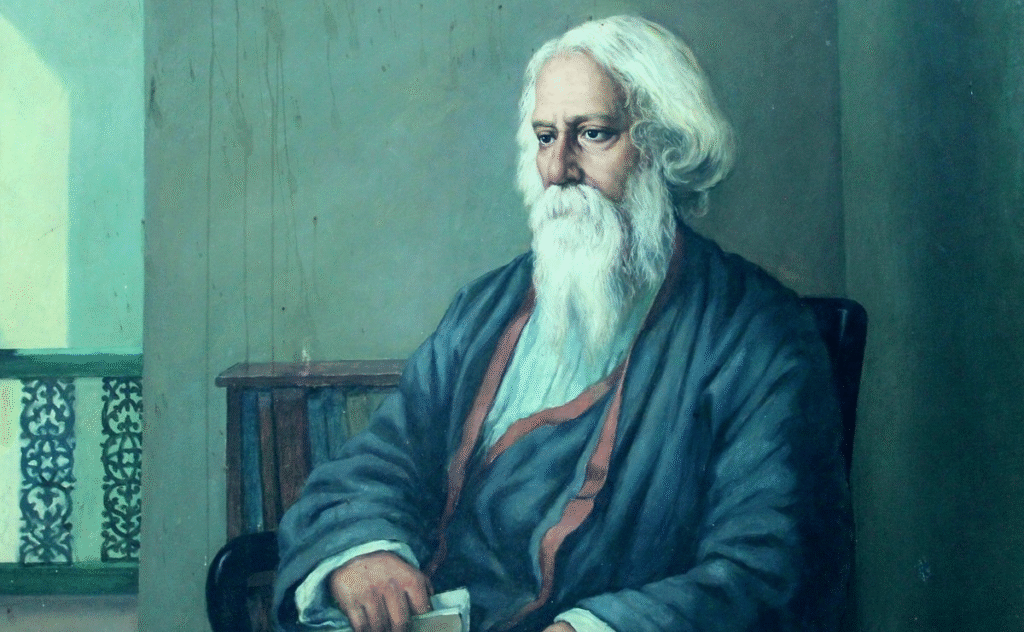
Remembering Rabindranath Tagore: A Timeless Torchbearer of Literature, Culture, and Unity
Sandipta Halder, May 8, 2025: On this sacred day of Rabindra Jayanti, we bow our heads in solemn reverence to one of the greatest sons of India—Gurudev Rabindranath Tagore. Born on 25th Baisakh, 1268 (May 7, 1861), Tagore was not just a literary genius, but a visionary who transcended the limitations of language, nation, and time. As a poet, novelist, dramatist, musician, philosopher, painter, reformer, and Nobel Laureate, his influence touched every corner of India—and the Barak Valley was no exception
Tagore’s vast body of work—which includes over 2,000 songs, dozens of plays, eight novels, and more than 50 volumes of poetry—speaks of a soul forever in search of the divine, the beautiful, and the human. He became Asia’s first Nobel Laureate in 1913 for his book Gitanjali, a lyrical collection that brought Indian spirituality to the Western world. His songs, now immortalized as Rabindra Sangeet, continue to echo in every Bengali household and cultural gathering.
Unlike militant nationalism, Tagore believed in a humanist nationalism rooted in freedom of thought, unity, and compassion. He renounced his knighthood after the Jallianwala Bagh massacre and stood firm against colonial oppression—not with weapons, but with a pen that wielded far greater power. His philosophies formed the spiritual backbone of India’s freedom struggle, influencing even Mahatma Gandhi, who lovingly referred to him as Gurudev.
While Rabindranath Tagore may never have physically visited Barak Valley, his intellectual, literary, and philosophical legacy penetrated deeply into the heart of this region. The Bengali-speaking populace of Cachar, Karimganj, and Hailakandi saw in Tagore not just a poet but a symbol of cultural identity, pride, and unity.
His works were quickly adopted in educational curricula across Silchar, with premier institutions like Guru Charan College leading the way in Rabindra Jayanti celebrations, literary meets, and cultural programs. Even today, schools and cultural bodies in Barak Valley honour his birth anniversary with passion, through poetry recitations, Rabindra Sangeet, and stage performances of his plays such as Dakghar and Chitrangada.
One of the most historically significant contributions of Rabindranath Tagore to Barak Valley was his vision for renaming the district of Karimganj. Tagore proposed the name “Sribhumi”, meaning “Land of Grace,” to reflect the region’s spiritual and cultural beauty. In 2025, that vision was finally fulfilled, as Karimganj has now officially been renamed Sribhumi, in tribute to the poet’s enduring dream.
This act is more than symbolic—it is a reaffirmation of Barak Valley’s identity as a land rooted in art, language, and heritage, values that Tagore tirelessly advocated.
The Bhasha Andolan of 1961 in Silchar saw Tagore’s spirit rise again. Protesters demanding official recognition of Bengali carried with them not just placards and slogans but the emotive power of Tagore’s writings. His words on the sanctity of mother tongue became a silent anthem of courage and defiance, guiding the movement that eventually led to the recognition of Bengali as an official language in Assam’s Barak Valley.
Today, even in the age of artificial intelligence and digital revolutions, Tagore remains astonishingly relevant. His words speak of environmental ethics, holistic education, cultural syncretism, and global citizenship—concepts that are now being revisited as humanity searches for meaning and peace in a fractured world.
Barak Valley, with its rich blend of literature, resistance, and culture, continues to find in Tagore not just inspiration, but identity and direction.
As we observe Rabindra Jayanti today, let us remember that to honour Tagore is not merely to sing his songs or recite his poems—it is to live his values. Let us build a society rooted in truth, beauty, dignity, and empathy, the very ideals Gurudev espoused throughout his life.
From Shantiniketan to Silchar, from the banks of the Kopai to the banks of the Barak—Tagore lives on.

